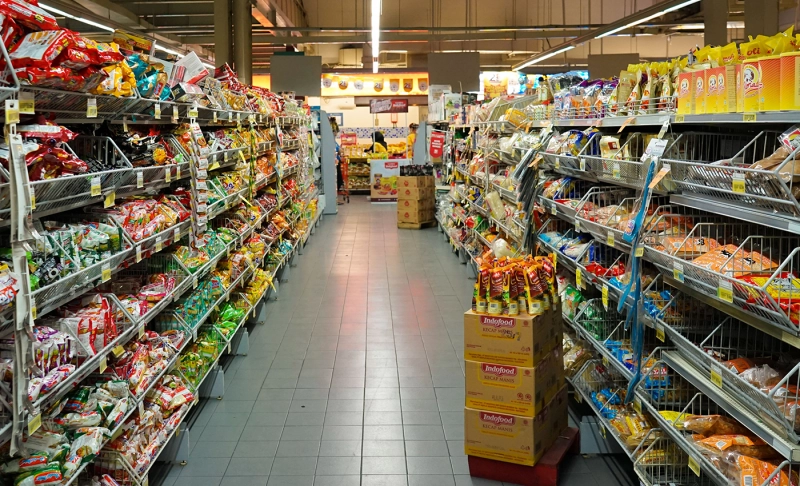By: Devika Kandelwal
January 13 2022
False: In Germany, vaccinated and unvaccinated people are being separated by a fence in a supermarket.

The Verdict False
The photo is not from Germany but from Romania. The fence ensured that people without health passes could only shop for essential items.
An Instagram account called "wallofcomedy" shared an image on December 6 with the caption "Too much? Or necessary? 🤔." The image shared is of a supermarket with the text "meanwhile in Germany the vaxxed and non-vaxxed are separated with a fence in a supermarket." In the last 24 hours, the post has garnered over 20k likes and over 25k views. Using a reserve image search, we found that the image is not from Germany but Romania. Romanian news organizations like Ziua de Vest, the R3Media, and the Digi24 news site covered this incident in mid-November 2021 and reported on the backlash the fence has received. According to Romanian news articles, a consumer protection association also called for a boycott of the supermarket in question. According to the fact checking organization Correctiv, the fence was installed to ensure that people without health passes or “green passes” only got access to the supermarket and not other shops. Another fact checking website called Lead Stories published a similar fact check where they found that an image from a mall in Riga, Latvia was used to claim that Germany is separating the vaccinated and the unvaccinated with a fence. The fact check further stated, "The barrier doesn't separate shoppers, it separates shopping outlets according to epidemiologically safe and less-safe conditions in different parts of the mall." CORRECTION: We have replaced the phrase "Russian news organizations" with "Romanian news organizations." We had incorrectly written Russia. The COVID-19 pandemic has given rise to a lot of potentially dangerous misinformation. For reliable advice on COVID-19, including symptoms, prevention, and available treatment, please refer to the World Health Organization or your national healthcare authority.


